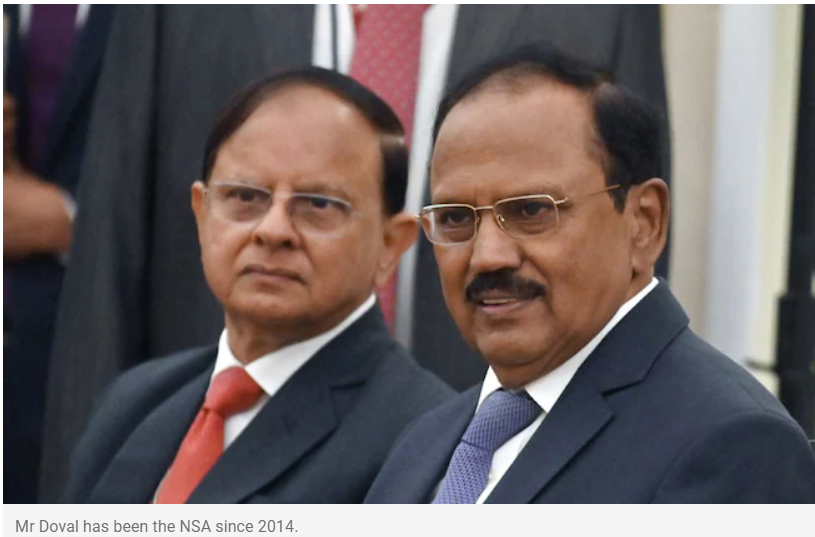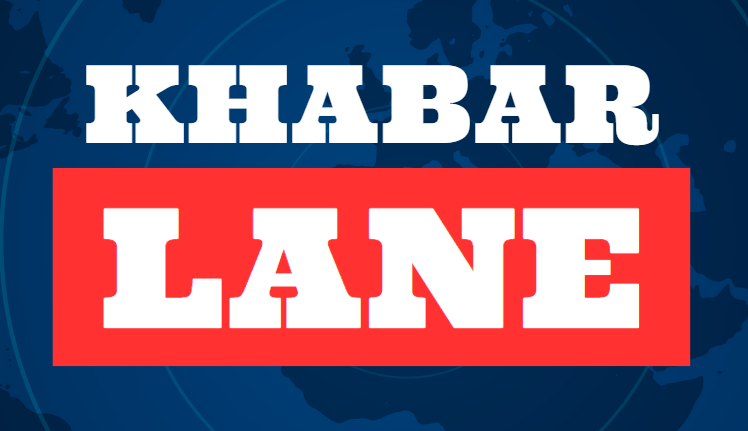
Ajit Doval has been reappointed as the National Security Advisor and PK Mishra as the Principal Secretary to the Prime Minister with effect from June 10, the government said today.
In statements announcing the appointments, the government said they will be “co-terminus with the term of the Prime Minister or until further orders, whichever is earlier”. This means that the officials will be in their posts until Narendra Modi is the Prime Minister, or until further orders.
Both Mr Doval and Mr Mishra will be assigned the rank of a cabinet minister in the table of precedence during their term in office, the statements said.
The Appointments Committee of the Cabinet has also approved the reappointment of Amit Khare and Tarun Kapoor as advisors to the PM, in the Prime Minister’s Office, for two years with effect from June 10. They are being appointed “in the rank and scale of Secretary to Government of India”.
The appointments reflect the trust the Prime Minister has in these officers, especially Mr Doval and Mr Mishra, who have been in their very important posts for many years now.
Ajit Doval: India’s National Security Strategist
Ajit Kumar Doval was born on January 20, 1945, in Ghiri Banelsyun village in Pauri Garhwal, in the erstwhile United Provinces (now Uttarakhand), India. His father was an officer in the Indian Army. Doval completed his schooling at the Ajmer Military School in Rajasthan and later graduated with a Master’s degree in Economics from the University of Agra in 1967.
Ajit Doval joined the Indian Police Service (IPS) in 1968, becoming a member of the Kerala cadre. He established a reputation for his intellect and resourcefulness very early in his career. His career took a significant turn when he joined the Intelligence Bureau (IB), India’s domestic intelligence, internal security, and counter-intelligence agency.
During his tenure with the Intelligence Bureau, Doval was involved in several high-profile covert operations. Notably:
- Mizoram and Punjab Insurgencies: Doval played a key role in dealing with insurgencies in Mizoram and Punjab. His efforts in Mizoram, where he spent extended periods incognito, were instrumental in bringing the insurgent leader Laldenga to negotiations.
- Operation Black Thunder (1988): Doval was actively involved in this operation, which aimed to flush out militants holed up in the Golden Temple in Amritsar. His role included negotiating with militants and planning the tactical aspects of the operation, which concluded successfully with minimal casualties.
- Undercover Operations in Pakistan: Doval spent several years undercover in Pakistan, gathering crucial intelligence that significantly contributed to India’s national security apparatus.
As NSA, Doval has been the architect of several critical policies and strategies, including:
- Doctrine of Defensive Offense: Doval articulated this doctrine, which emphasizes taking proactive measures to neutralize threats to national security, including conducting cross-border strikes if necessary.
- Surgical Strikes (2016): Doval was a key strategist behind the surgical strikes conducted by the Indian Army across the Line of Control (LoC) in 2016, in response to the Uri attack by terrorists. This marked a significant shift in India’s strategic posture towards terrorism.
- Balakot Airstrike (2019): Following the Pulwama attack, where a convoy of Indian paramilitary personnel was attacked by a suicide bomber, Doval was instrumental in planning and executing the Balakot airstrike in Pakistan, targeting terrorist camps.
- Counter-Terrorism and Internal Security: Doval has played a pivotal role in strengthening India’s counter-terrorism framework and improving internal security mechanisms.
Ajit Doval is known for his sharp analytical skills, strategic thinking, and a hands-on approach to solving complex security issues. His ability to operate under extreme pressure and his extensive experience in intelligence and security make him a formidable figure in India’s defense landscape.
Some facts about Principal Secretary P K Mishra:
Pramod Kumar Mishra, commonly known as P.K. Mishra, was born on August 11, 1948, in Odisha, India. He completed his undergraduate studies at Utkal University and later earned a master’s degree in Economics from Delhi School of Economics. Mishra further enhanced his academic credentials with a Ph.D. in Economics/Development Studies from the University of Sussex in the United Kingdom.
P.K. Mishra is a distinguished officer of the Indian Administrative Service (IAS) from the Gujarat cadre, belonging to the 1972 batch
He played a very significant role as a District Magistrate in various districts of Gujarat, Mishra implemented several development projects and administrative reforms
P.K. Mishra’s most notable contributions has been in the field of agriculture and disaster management.
As the Agriculture Secretary of India, Mishra played a pivotal role in shaping agricultural policies and reforms. His efforts were instrumental in improving the efficiency and effectiveness of agricultural practices in India.
Mishra has been recognized for his work in disaster management, particularly for his leadership in formulating and implementing strategies to mitigate the impact of natural disasters. His expertise in this field led to the development of robust disaster management frameworks at both state and national levels.
Principal Secretary to the Prime Minister
In September 2019, P.K. Mishra was appointed as the Principal Secretary to the Prime Minister of India, Narendra Modi. In this capacity, he succeeded Nripendra Misra and became a key figure in the administration, known for his deep understanding of governance and policy implementation.
Policy Advisor: As Principal Secretary, Mishra acts as a chief advisor to the Prime Minister on a wide range of issues, including economic policies, administrative reforms, and international relations.
Coordination and Implementation: He oversees the coordination and implementation of the government’s key initiatives and programs, ensuring that the Prime Minister’s directives are efficiently executed.
Crisis Management: Mishra has been at the forefront of managing crises, including the COVID-19 pandemic, where his administrative skills were crucial in coordinating the government’s response.
P.K. Mishra has had a long-standing professional association with Prime Minister Narendra Modi, dating back to Modi’s tenure as the Chief Minister of Gujarat. This enduring relationship has facilitated a strong working dynamic and mutual understanding between the two, benefiting the execution of national policies.
Mishra is known for his calm demeanor and strategic approach to problem-solving. His ability to remain composed under pressure and his methodical decision-making process have earned him respect among peers and subordinates alike.
